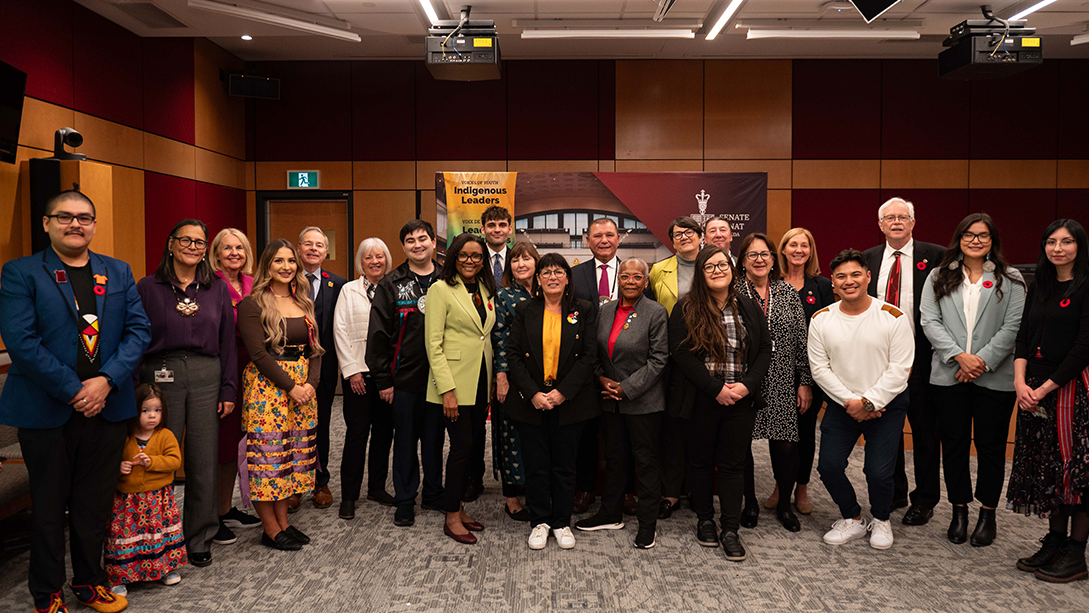Resolving housing problems in Canada’s north
Ottawa – A stable federal funding strategy for housing in the Inuit homeland is desperately needed, a Senate committee said in a report released Thursday.
The lack of suitable and affordable housing is a major concern in Canada’s northernmost locales, leading to serious health and safety concerns like tuberculosis, mental health problems, and respiratory infections.
The Senate Committee on Aboriginal Peoples’ report makes 13 recommendations to address these issues. The study, which began in February 2016, paints a picture of housing in communities in Nunavut, Nunavik (northern Quebec), Nunatsiavut (parts of Newfoundland and Labrador) and the Northwest Territories in the hopes of shining a light on the challenges faced by the residents of Canada’s north.
In its report, We Can Do Better: Housing in Inuit Nunangat, the committee emphasized the need to develop a long term and predictable strategy related to funding for northern housing. The strategy would make it possible to address concerns about declining funding under social housing agreements and enable housing authorities to plan for and meet long-term housing needs.
A federal policy designed to facilitate the recruitment and retention of staff delivering government programs in isolated locations also needs to be immediately reviewed. It prioritizes non-residents over local Inuit employees, who often have few housing options in their communities.
Given the unique and often challenging landscape of Inuit Nunangat (Inuktitut for “the place where Inuit live”), the committee also highlighted the need to research and develop better housing designs and do a better job of community planning tailored to the unique conditions of the north, including climate change.
In addition, the committee recommends that the Canada Mortgage and Housing Corporation work with Inuit organizations in the Northwest Territories, Nunavik, and Nunatsiavut to ensure funding for Inuit housing is provided directly to those organizations, where appropriate. In this connection, the committee noted its satisfaction that the federal 2016 budget implemented that recommendation by providing housing monies directly to Inuit organizations in Nunatsiavut, Nunavik and the Inuvialuit region of the Northwest Territories.
The federal government must act now to address the housing crisis. We can do better.
Quick Facts
- Over half of Inuit families in Nunavik, or northern Quebec, live in overcrowded housing. In a fact-finding mission, senators saw instances where more than a dozen people shared poorly-ventilated three-bedroom units in substandard conditions.
- Due to inadequate housing, tuberculosis — largely eradicated in southern Canada — occurs at a rate over 250 times higher among Inuit populations than among non-Indigenous Canadians.
- The costs of construction in the north, including operations, maintenance and transportation, are estimated to be three times higher than in Toronto.
Quotes
“To provide young Inuit with the ability to participate fully in the life of their communities, investments in housing must be a priority. This growing population must have access to safe, affordable housing options in order to contribute to the prosperity of Canada’s north.”
- Senator Lillian Eva Dyck, Chair of the committee
“A solution to the northern housing crisis must be attained through direct involvement of Inuit. They know firsthand the conditions and are able to identify local needs and priorities within their communities.”
-Senator Dennis Patterson, Deputy Chair of the committee
Associated Links
- Read the report: We Can Do Better: Housing in Inuit Nunangat
- Read about the committee’s fact-finding mission to Inuit Nunangat, One Week in the North.
- Follow the committee on social media using the hashtag #APPA.
For more information or to book interviews please contact:
Sonia Noreau
Media Relations Coordinator (Communications)
Senate of Canada
613-614-1180 | sonia.noreau@sen.parl.gc.ca





